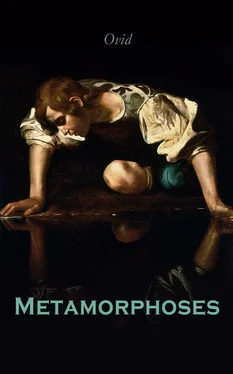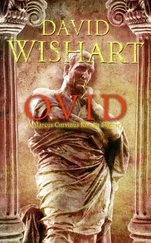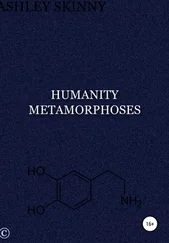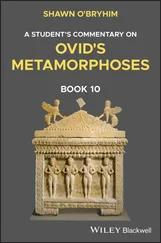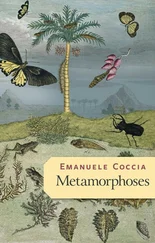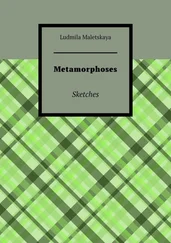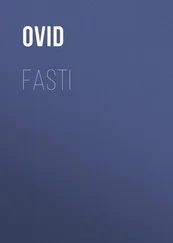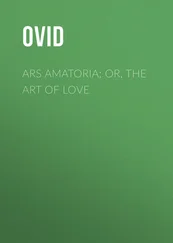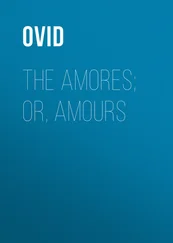God reduces Chaos into order. He separates the four elements, and disposes the several bodies, of which the universe is formed, into their proper situations.
At first, the sea, the earth, and the heaven, which covers all things, were the only face of nature throughout the whole universe, which men have named Chaos; a rude and undigested mass, 4and nothing more than an inert weight, and the discordant atoms of things not harmonizing, heaped together in the same spot. No Sun 5as yet gave light to the world; nor did the Moon, 6by increasing, recover her horns anew. The Earth did not as yet hang in the surrounding air, balanced by its own weight, nor had Amphitrite 7stretched out her arms along the lengthened margin of the coasts. Wherever, too, was the land, there also was the sea and the air; and thus was the earth without firmness, the sea unnavigable, the air void of light; in no one of them did its present form exist. And one was ever obstructing the other; because in the same body the cold was striving with the hot, the moist with the dry, the soft with the hard, things having weight with those devoid of weight.
To this discord God and bounteous Nature 8put an end; for he separated the earth from the heavens, and the waters from the earth, and distinguished the clear heavens from the gross atmosphere. And after he had unravelled these elements , and released them from that confused heap, he combined them, thus disjoined, in harmonious unison, each in its proper place. The element of the vaulted heaven, 9fiery and without weight, shone forth, and selected a place for itself in the highest region; next after it, both in lightness and in place, was the air; the Earth was more weighty than these, and drew with it the more ponderous atoms, and was pressed together by its own gravity. The encircling waters sank to the lowermost place, 10and surrounded the solid globe.
The ancient philosophers, unable to comprehend how something could be produced out of nothing, supposed a matter pre-existent to the Earth in its present shape, which afterwards received form and order from some powerful cause. According to them, God was not the Creator, but the Architect of the universe, in ranging and disposing the elements in situations most suitable to their respective qualities. This is the Chaos so often sung of by the poets, and which Hesiod was the first to mention.
It is clear that this system was but a confused and disfigured tradition of the creation of the world, as mentioned by Moses; and thus, beneath these fictions, there lies some faint glimmering of truth. The first two chapters of the book of Genesis will be found to throw considerable light on the foundation of this Mythological system of the world’s formation.
Hesiod, the most ancient of the heathen writers who have enlarged upon this subject, seems to have derived much of his information from the works of Sanchoniatho, who is supposed to have borrowed his ideas concerning Chaos from that passage in the second verse of the first Chapter of Genesis, which mentions the darkness that was spread over the whole universe—‘and darkness was upon the face of the deep’—for he expresses himself almost in those words. Sanchoniatho lived before the Trojan war, and professed to have received his information respecting the original construction of the world from a priest of ‘Jehovah,’ named Jerombaal. He wrote in the Phœnician language; but we have only a translation of his works, by Philo Judæus, which is by many supposed to be spurious. It is, however, very probable, that from him the Greeks borrowed their notions regarding Chaos, which they mingled with fables of their own invention.
After the separation of matter, God gives form and regularity to the universe; and all other living creatures being produced, Prometheus moulds earth tempered with water, into a human form, which is animated by Minerva.
When thus he, whoever of the Gods he was, 11had divided the mass so separated, and reduced it, so divided, into distinct members; in the first place, that it might not be unequal on any side, he gathered it up into the form of a vast globe; then he commanded the sea to be poured around it, and to grow boisterous with the raging winds, and to surround the shores of the Earth, encompassed by it ; he added also springs, and numerous pools and lakes, and he bounded the rivers as they flowed downwards, with slanting banks. These, different in different places, are some of them swallowed up 12by the Earth itself; some of them reach the ocean, and, received in the expanse of waters that take a freer range, beat against shores instead of banks.
He commanded the plains, 13too, to be extended, the valleys to sink down, the woods to be clothed with green leaves, the craggy mountains to arise; and, as on the right-hand side, 14two Zones intersect the heavens, and as many on the left; and as there is a fifth hotter than these, so did the care of the Deity distinguish this enclosed mass of the Earth by the same number, and as many climates are marked out upon the Earth. Of these, that which is the middle one 15is not habitable on account of the heat; deep snow covers two 16 of them . Between either these he placed as many more, 17and gave them a temperate climate, heat being mingled with cold.
Over these hangs the air, which is heavier than fire, in the same degree that the weight of water is lighter than the weight of the earth. Here he ordered vapors, here too, the clouds to take their station; the thunder, too, to terrify the minds of mortals, and with the lightnings, the winds that bring on cold. The Contriver of the World did not allow these indiscriminately to take possession of the sky. Even now, (although they each of them govern their own blasts in a distinct tract) they are with great difficulty prevented from rending the world asunder, so great is the discord of the brothers. 18Eurus took his way 19towards the rising of Aurora and the realms of Nabath 20and Persia, and the mountain ridges exposed to the rays of the morning. The Evening star, and the shores which are warm with the setting sun, are bordering upon Zephyrus. 21The terrible Boreas invaded Scythia, 22and the regions of the North. The opposite quarter is wet with continual clouds, and the drizzling South Wind. 23Over these he placed the firmament, clear and devoid of gravity, and not containing anything of the dregs of earth.
Scarcely had he separated all these by fixed limits, when the stars, which had long lain hid, concealed beneath that mass of Chaos , began to glow through the range of the heavens. And that no region might be destitute of its own peculiar animated beings, the stars and the forms of the Gods 24possess the tract of heaven; the waters fell to be inhabited by the smooth fishes; 25the Earth received the wild beasts, and the yielding air the birds.
But an animated being, more holy than these, more fitted to receive higher faculties, and which could rule over the rest, 26was still wanting. Then Man was formed. Whether it was that the Artificer of all things, the original of the world in its improved state, framed him from divine elements; 27or whether, the Earth, being newly made, and but lately divided from the lofty æther, still retained some atoms of its kindred heaven, which, tempered with the waters of the stream, the son of Iapetus fashioned after the image of the Gods, who rule over all things. And, whereas other animals bend their looks downwards upon the Earth, to Man he gave a countenance to look on high and to behold the heavens, and to raise his face erect to the stars. Thus, that which had been lately rude earth, and without any regular shape, being changed, assumed the form of Man, till then unknown.
Читать дальше
